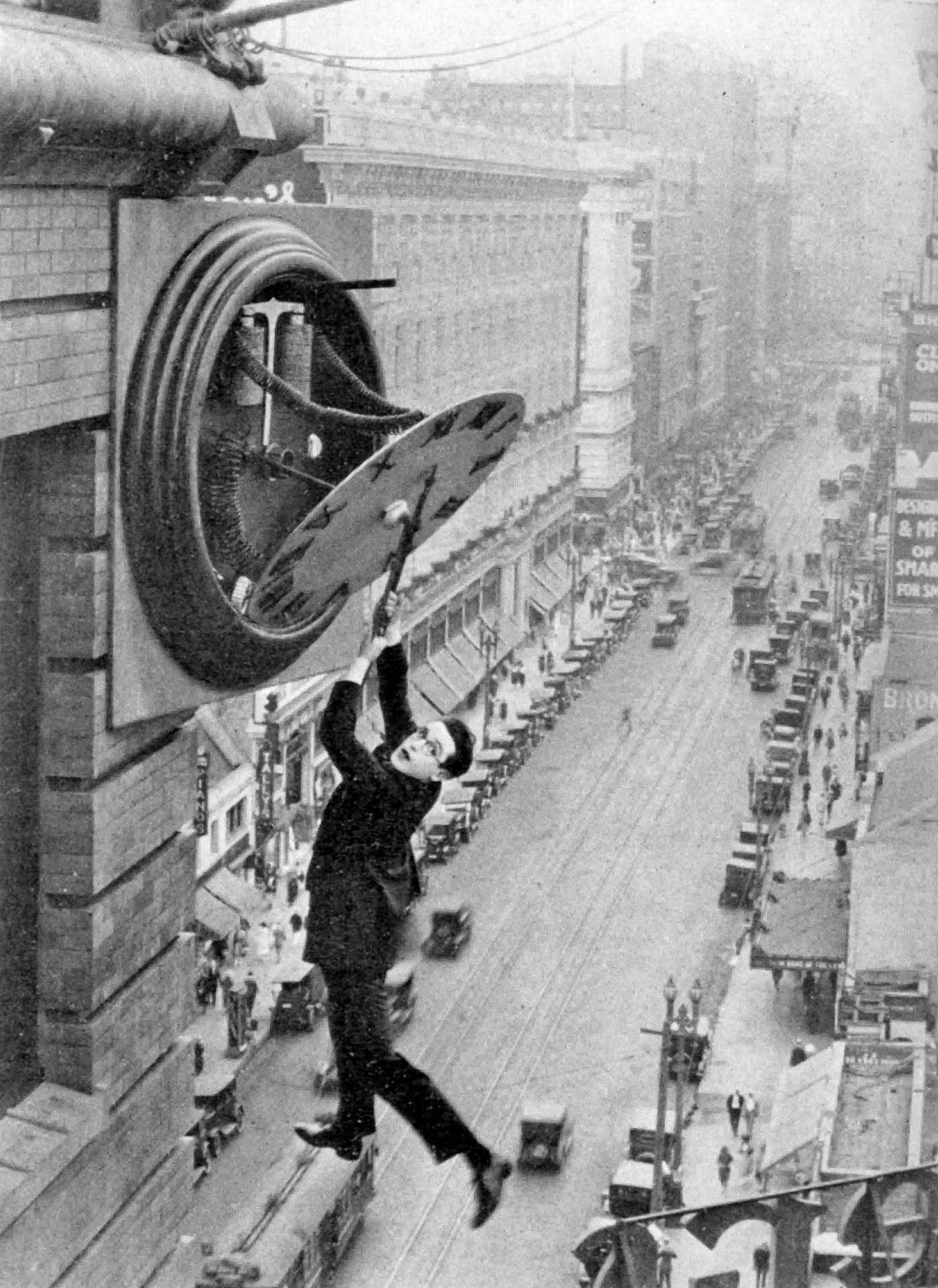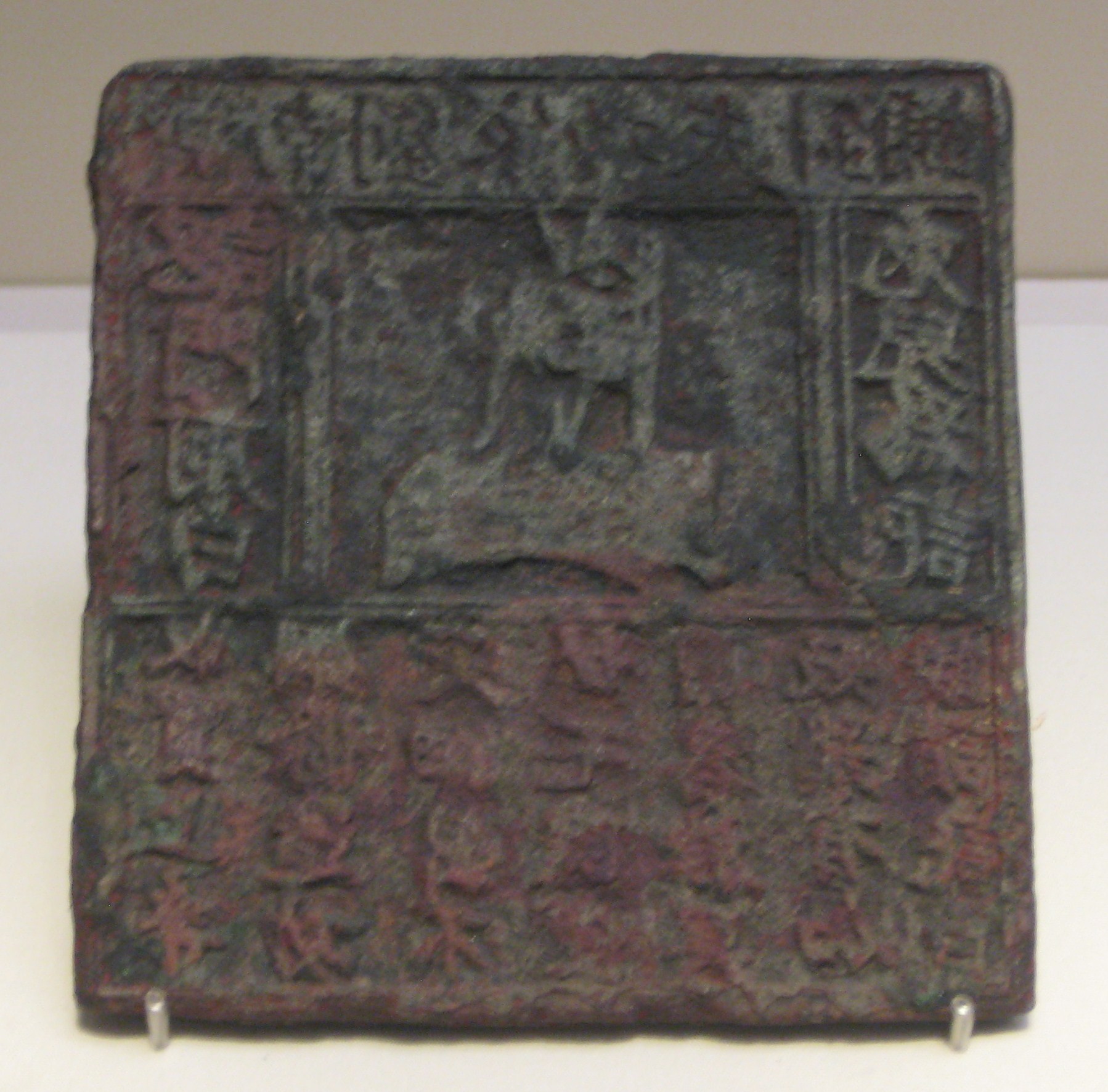|
Pressbook
In the world of theatrical film exhibition, a pressbook was a promotional tool created and distributed by film distributors in order to market their films. Sometimes called "campaign manuals," most pressbooks took the form of large, multi-page brochures that were mailed to movie theaters in the interest of helping theaters attract an audience. A typical pressbook contained images of the various advertising "accessories" available to promote a movie, including images of the available film posters, lobby cards, and 8 x 10 film stills. They also contained the various newspaper advertisements exhibitor could employ in local newspaper advertising as well as short, feature pieces that could be planted in local newspapers, usually without cost. During Cinema of the United States, Hollywood's Classical Hollywood cinema, Golden Age, pressbooks also contained various ideas for so-called Advertising, exploitation campaigns, including souvenir-style give-aways, tie-ins and contests, as well as ... [...More Info...] [...Related Items...] OR: [Wikipedia] [Google] [Baidu] |
Film Poster
A film poster is a poster used to promote and advertise a film primarily to persuade paying customers into a theater to see it. Studios often print several posters that vary in size and content for various domestic and international markets. They normally contain an image with text. Today's posters often feature printed likenesses of the main actors. Prior to the 1980s, illustrations instead of photos were far more common. The text on film posters usually contains the film title in large lettering and often the names of the main actors. It may also include a tagline, the name of the director, names of characters, the release date, and other pertinent details to inform prospective viewers about the film. Film posters are often displayed inside and on the outside of movie theaters, and elsewhere on the street or in shops. The same images appear in the film exhibitor's pressbook and may also be used on websites, DVD (and historically VHS) packaging, flyers, advertisements in newspap ... [...More Info...] [...Related Items...] OR: [Wikipedia] [Google] [Baidu] |
Steamboat Bill, Jr
''Steamboat Bill, Jr.'' is a 1928 Silent film, silent comedy film starring Buster Keaton. Released by United Artists, the film is the final product of Keaton's independent production team and set of gag writers. Charles Reisner directed the film, and the credited story writer was Carl Harbaugh. The film, named after Arthur Collins (singer), Arthur Collins's popular 1911 recording of the 1910 song "Steamboat Bill," also featured Ernest Torrence, Marion Byron, and Tom Lewis. The film is known for what may be Keaton's most famous film stunt: The facade of a house falls around him while he stands in the precise location of an open window to avoid being flattened. The film was not a box-office success and became the last picture Keaton made for United Artists. Keaton ended up moving to Metro-Goldwyn-Mayer, where he made one last film in his trademark style, ''The Cameraman,'' and ''Spite Marriage,'' before his creative control was taken away by the studio. In 2016, the film was sele ... [...More Info...] [...Related Items...] OR: [Wikipedia] [Google] [Baidu] |
Film Distributor
A film distributor is a person responsible for the marketing of a film. The distribution company may be the same as, or different from, the production company. Distribution deals are an important part of financing a film. The distributor may set the release date of a film and the method by which a film is to be exhibited or made available for viewing; for example, directly to the public either theatrically or for home viewing ( DVD, video-on-demand, download, television programs through broadcast syndication etc.). A distributor may do this directly, if the distributor owns the theaters or film distribution networks, or through theatrical exhibitors and other sub-distributors. A limited distributor may deal only with particular products, such as DVDs or Blu-ray, or may act in a particular country or market. The primary distributor will often receive credit in the film's credits, one sheet or other marketing material. Distribution types Theatrical distribution If a distributor ... [...More Info...] [...Related Items...] OR: [Wikipedia] [Google] [Baidu] |
Film Still
A film still (sometimes called a publicity still or a production still) is a photograph, taken on or off the set of a Film, movie or television program during Film production, production. These photographs are also taken in formal studio settings and venues of opportunity such as film stars' homes, film debut events, and commercial settings. The photos were taken by movie stills photographer, studio photographers for Promotion (marketing), promotional purposes. Such stills consisted of posed portraits, used for public display or free fan handouts, which are sometimes autographed. They can also consist of posed or candid images taken on the set during production, and may include stars, crew members or directors at work. The main purpose of such publicity stills is to help studios advertise and promote their new films and stars. Studios therefore send those photos along with press kits and free passes to as many movie-related publications as possible so as to gain free publicity. Su ... [...More Info...] [...Related Items...] OR: [Wikipedia] [Google] [Baidu] |
Newspaper
A newspaper is a Periodical literature, periodical publication containing written News, information about current events and is often typed in black ink with a white or gray background. Newspapers can cover a wide variety of fields such as politics, business, sports, art, and science. They often include materials such as opinion columns, weather forecasts, reviews of local services, Obituary, obituaries, birth notices, crosswords, editorial cartoons, comic strips, and advice columns. Most newspapers are businesses, and they pay their expenses with a mixture of Subscription business model, subscription revenue, Newsagent's shop, newsstand sales, and advertising revenue. The journalism organizations that publish newspapers are themselves often Metonymy, metonymically called newspapers. Newspapers have traditionally been published Printing, in print (usually on cheap, low-grade paper called newsprint). However, today most newspapers are also Electronic publishing, published on webs ... [...More Info...] [...Related Items...] OR: [Wikipedia] [Google] [Baidu] |
Cinema Of The United States
The cinema of the United States, primarily associated with major film studios collectively referred to as Hollywood, has significantly influenced the global film industry since the early 20th century. Classical Hollywood cinema, a filmmaking style developed in the 1910s, continues to shape many American films today. While French filmmakers Auguste and Louis Lumière are often credited with modern cinema's origins, American filmmaking quickly rose to global dominance. As of 2017, more than 600 English-language films were released annually in the U.S., making it the fourth-largest producer of films, trailing only India, Japan, and China. Although the United Kingdom, Canada, Australia, and New Zealand also produce English-language films, they are not directly part of the Hollywood system. Due to this global reach, Hollywood is frequently regarded as a transnational cinema with some films released in multiple language versions, such as Spanish and French. Contemporary Hollyw ... [...More Info...] [...Related Items...] OR: [Wikipedia] [Google] [Baidu] |
Classical Hollywood Cinema
In film criticism, Classical Hollywood cinema is both a narrative and visual style of filmmaking that first developed in the 1910s to 1920s during the later years of the Silent film#Silent film era, silent film era. It then became characteristic of Cinema of the United States, United States cinema during the Golden Age of Hollywood from about 1927, with the advent of sound film, until the arrival of New Hollywood productions in the 1960s. It eventually became the most powerful and persuasive style of filmmaking worldwide. Similar or associated terms include classical Hollywood narrative, the Golden Age of Hollywood, Old Hollywood, and classical continuity. The period is also referred to as the studio era, which may also include films of the late silent era. History Silent era and emergence of the classical style For millennia, the only visual standard of narrative storytelling art was the theatre. Since the first narrative films in the mid-late 1890s, filmmakers have sought to ... [...More Info...] [...Related Items...] OR: [Wikipedia] [Google] [Baidu] |
Advertising
Advertising is the practice and techniques employed to bring attention to a Product (business), product or Service (economics), service. Advertising aims to present a product or service in terms of utility, advantages, and qualities of interest to Consumer, consumers. It is typically used to promote a specific good or service, but there are a wide range of uses, the most common being commercial advertisement. Commercial advertisements often seek to generate increased Consumption (economics), consumption of their products or services through "Branding (promotional), branding", which associates a product name or image with certain qualities in the minds of consumers. On the other hand, ads that intend to elicit an immediate sale are known as Direct marketing, direct-response advertising. Non-commercial entities that advertise more than consumer products or services include Political party, political parties, Interest group, interest groups, Religious organization, religious o ... [...More Info...] [...Related Items...] OR: [Wikipedia] [Google] [Baidu] |
Souvenir
A souvenir ( French for 'a remembrance or memory'), memento, keepsake, or token of remembrance is an object a person acquires for the memories the owner associates with it. A souvenir can be any object that can be collected or purchased and transported home by the traveler as a memento of a visit. The object itself may have intrinsic value, or be a symbol of experience. Without the owner's input, the symbolic meaning is lost and cannot be articulated. As objects The tourism industry designates tourism souvenirs as commemorative merchandise associated with a location, often including geographic information and usually produced in a manner that promotes souvenir collecting. Throughout the world, the souvenir trade is an important part of the tourism industry serving a dual role, first to help improve the local economy, and second to allow visitors to take with them a memento of their visit, ultimately to encourage an opportunity for a return visit, or to promote the locale to ... [...More Info...] [...Related Items...] OR: [Wikipedia] [Google] [Baidu] |
Tie-in
A tie-in work is a work of fiction or other product based on a media property such as a film, video game, television series, board game, website, role-playing game or literary property. Tie-ins are authorized by the owners of the original property, and are a form of cross-promotion used primarily to generate additional income from that property and to promote its visibility. Types Common tie-in products include literary works, which may be novelizations of a media property, original novels or story collections inspired by the property, or republished previously existing books, such as the novels on which a media property was based, with artwork or photographs from the property. According to publishing industry estimates, about one or two percent of the audience of a film will buy its novelization, making these relatively inexpensively produced works a commercially attractive proposition in the case of blockbuster film franchises. Although increasingly also a domain of previo ... [...More Info...] [...Related Items...] OR: [Wikipedia] [Google] [Baidu] |
Alan Rostron
Alan may refer to: People *Alan (surname), an English and Kurdish surname *Alan (given name), an English given name **List of people with given name Alan ''Following are people commonly referred to solely by "Alan" or by a homonymous name.'' *Alan (Chinese singer) (born 1987), female Chinese singer of Tibetan ethnicity, active in both China and Japan *Alan (Mexican singer) (born 1973), Mexican singer and actor *Alan (wrestler) (born 1975), a.k.a. Gato Eveready, who wrestles in Asistencia Asesoría y Administración *Alan (footballer, born 1979) (Alan Osório da Costa Silva), Brazilian footballer *Alan (footballer, born 1998) (Alan Cardoso de Andrade), Brazilian footballer *Alan I, King of Brittany (died 907), "the Great" * Alan II, Duke of Brittany (c. 900–952) *Alan III, Duke of Brittany(997–1040) *Alan IV, Duke of Brittany (c. 1063–1119), a.k.a. Alan Fergant ("the Younger" in Breton language) * Alan of Tewkesbury, 12th century abbott *Alan of Lynn (c. 1348–1423), 15th ce ... [...More Info...] [...Related Items...] OR: [Wikipedia] [Google] [Baidu] |
Journal Of Popular Film And Television
A journal, from the Old French ''journal'' (meaning "daily"), may refer to: *Bullet journal, a method of personal organization *Diary, a record of personal secretive thoughts and as open book to personal therapy or used to feel connected to oneself. A record of what happened over the course of a day or other period *Daybook, also known as a general journal, a daily record of financial transactions *Logbook, a record of events important to the operation of a vehicle, facility, or otherwise * Transaction log, a chronological record of data processing * Travel journal, a record of the traveller's experience during the course of their journey In publishing, ''journal'' can refer to various periodicals or serials: *Academic journal, an academic or scholarly periodical **Scientific journal, an academic journal focusing on science ** Medical journal, an academic journal focusing on medicine ** Law review, a professional journal focusing on legal interpretation *Magazine, non-academic o ... [...More Info...] [...Related Items...] OR: [Wikipedia] [Google] [Baidu] |







